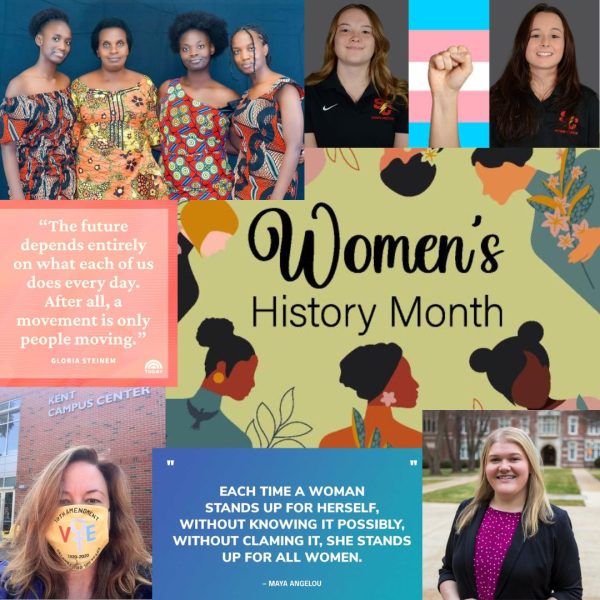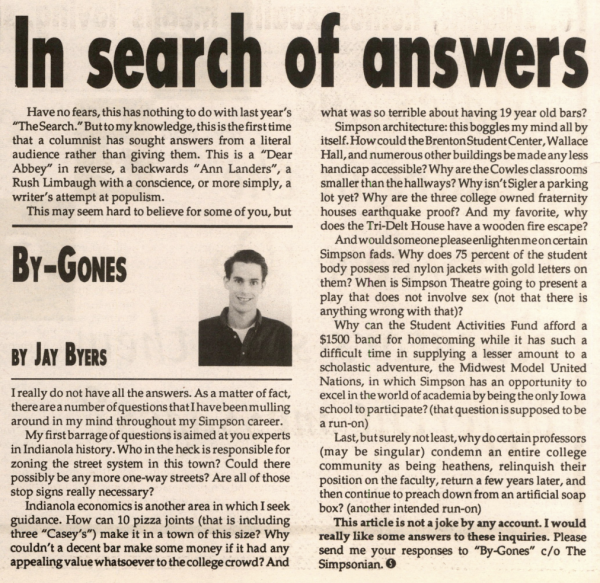Editorial: White people should shut up sometimes
December 9, 2021
As attendees of a liberal arts institution, we’re required to take courses outside of our main area(s) of study. Some of these required courses focus on issues of diversity, power, inclusion, intercultural communication and historical perspective. A number of my political science courses delve deeper into these topics, and I can’t help but notice a few things among my fellow white peers during these types of classes.
Don’t get me wrong, I’m all for facilitating classroom discussion amongst a diverse group of students, but the reality is that this is hardly the case. Simpson is a predominantly white institution with predominantly white classrooms.
I’m also incredibly happy to see white allies participating in classroom discussion, so long as it’s genuine. However, there are some instances when white allies need to take a step back and reexamine how they’re executing their allyship.
When it comes to discussions of issues unique to people of color, there’s a time and a place for white allies to contribute, and they should be careful not to monopolize this time during class discussions.
The main reason I suggest this is because it’s not about you, literally.
You’d think that this would go without saying, but white people should not be overspeaking and patronizing themselves during discussions of race in America, particularly conversations examining the oppression people of color face in this country. You don’t want to take away from a space that should be theirs.
As pure as your intentions may be as a white ally, you shouldn’t incessantly and insensitively try to whitesplain racism to your peers. It’s important to note that we, as white people, will never understand how it feels to be oppressed in the United States. Even if you identify with a group that has been historically oppressed or marginalized in some way—i.e. women, the LGBTQIA+ community, the disability community —you still do not have the right to speak on, or try to relate your experience to, the oppression communities of color face and have faced.
When you’re surrounded by white people alone and feel sharing your knowledge on issues of race would be helpful, be sure to separate yourself from the experiences of people of color familiar to you. Don’t just recycle the same, “My friend, significant other, uncle, whoever is Black and did/felt X,” story for the sake of class participation. Your friends or family of color don’t give you the authority to speak on any and all issues concerning people of color, and they shouldn’t have to be the catalyst of your learning and participation.
A necessary and vital key to allyship is simply being an active listener, then doing the work. Hearing and comprehending the perspectives and thoughts of people of color in real time is just as important as digesting the material you’re learning in class. This is why it’s so important that you give people of color the floor in these classes.
Additionally, you must be willing to learn how to be anti-racist, then actively work towards the changes needed in society. Working on yourself as an individual, collaborating with others—fellow white people and people of color—and taking real, tangible steps towards change Protesting, sharing resources, educating others, donating to funds and signing petitions are vital in the effort to create an equitable society. We must be doing these things consistently. The fight towards equity, something all just Americans should strive for, is a constant one. I am learning and unlearning information, beliefs and behaviors all the time, and this is largely thanks to my experience listening to people of color in my community.
I’m not saying white allies shouldn’t be proud of themselves for the effort we’ve put into becoming educated on key issues of race, but I fear doing so would be putting the bar on the floor—burying it, perhaps. But still, taking a listening and learning approach to allyship is key over any kind of participation point.















